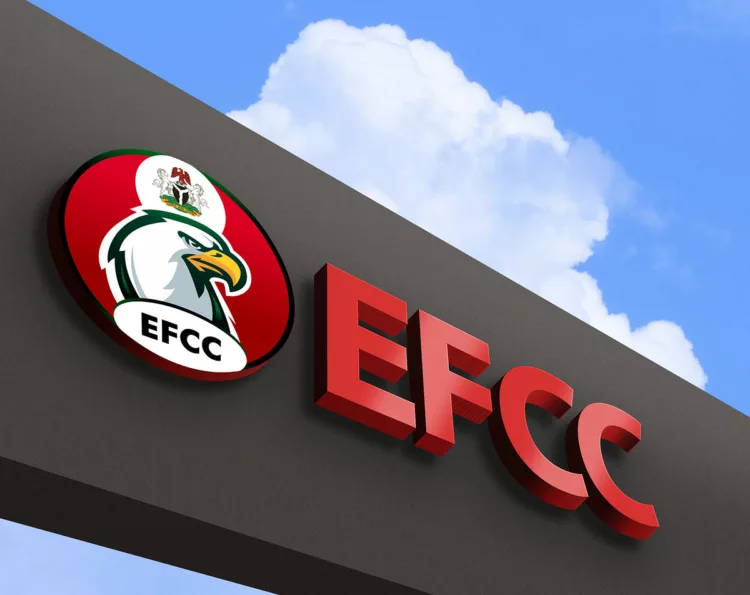The Economic and Financial Crimes Commission (EFCC) has been in the news lately. Its activities have attracted mixed reactions, to say the least. From the arrest of cross dresser, Idris Okuneye popularly called Bobrisky, to its current entanglement with former Governor of Kogi State, Yahaya Bello, the commission has had a dramatic time these past few weeks.
But the long-held view that it has yet to tackle cases of politically exposed persons, efficiently, professionally and swiftly has refused to go away, no thanks to the actions and inactions of the commission on the one hand and the intrinsically broken socio-political system in Nigeria.
It needs be stated, in our view, that the commission has done appreciably well in apprehending and securing convictions against non-politically exposed persons. However, EFCC, commendably so, has begun prosecution of the immediate past Central Bank of Nigeria governor, Godwin Emefiele, and has invited the former minister of Aviation, Hadi Sirika to tell the nation all he knows about the alleged unaccounted N8 billion.
But its intervention in the alleged corruption saga surrounding the humanitarian ministry and the suspended minister, Betta Edu, has lingered, triggering concerns about whether it would be business as usual especially when special politically exposed persons are concerned. As at the start of this year, it was reported that the commission will revive the alleged fraud cases involving 13 former governors.
In August 2017, a national daily had reported that the commission was still investigating some high-profile cases involving over 100 politically-exposed persons and top-ranking public officers. Yet for almost more than a decade, the commission has barely won a case against that category of persons. The situation was so bad that one former acting chairman of EFCC, Abdulkarim Chukkol, at a capacity building workshop for officials of anti-graft agencies in Abuja, said the commission has “arguably the most inconclusive matter in the world.”
Represented by the EFCC secretary at the event, the then acting chairman said, “you finish (an investigation) but there is no report telling you the end of it.” Interestingly, he didn’t end there, he continued “when a matter continues to linger …. especially at the level of investigation, the government doesn’t benefit, somebody else does.”
Of course, this concern draws from a number of reasons, which culminates, just like most other government institutions, in the raw and overbearing influence of the political elite. In a clime where politics and class interest are at play, the purpose is to drain the commonwealth rather than ensuring inclusive development, even if institutions of state are deliberately held down from performing.
From the challenge of how its leadership emerges to the “notion” that the commission was designed as an “attack machine” against political opponents, the leadership of the EFCC has, since its establishment, been made to navigate an intricate space as far as prosecuting politically-exposed persons are concerned.
The dilemma of the sponsor of the piper calling the tune has remained a huge burden on its ability to function constructively, robustly and efficiently. As such, for over two decades, political office holders seem to have gotten away with looted funds. What is worse, this situation has created a frightening immoral political burden where office seekers are solely focused on getting access to the Commonwealth for selfish reasons.
Clearly, in our opinion, the level of insecurity, prostrate economy and infrastructure collapse, reflects this failing, which manifests in poor governance and ultimately fragile democratic structures. But this situation has to change. It’s a good thing that the new chairman, in his recent press conference, dismissed the notion that he can be manipulated.
This is a welcome statement. As such, it is hoped that he would try as best he can to make a difference with regards to ensuring that high profile cases are well investigated and properly prosecuted.
As much as we won’t accentuate rumours of EFCC personnel deliberately compromising investigations and prosecution processes, we believe that Nigerians need to see a change in the modus operandi of the commission going forward.
Also, concerns over media trials are real. Nigerians were entertained with many of such during the last administration where lots of allegations of corruption were reeled out against members of the former ruling party in the media.
All of the noise generated by the commission in the trail of those alleged corrupt persons seemed to have fizzled out. Most of those accused of having stolen so much now walk free as the EFCC seems to be left scratching its head.
Of course, politically exposed persons would seek to drag the commission into a media spectacle of sorts, which we condemn in totality. But the expectation is that the commission, under the present leadership, will be circumspect enough to avoid such a trap.
We also believe that the Judiciary needs to help the situation by ensuring prompt prosecution of cases and putting a halt to the ease of using ex-parte orders to thwart the work of the commission and frustrate the course of justice.










